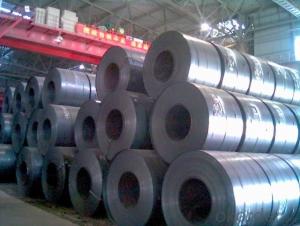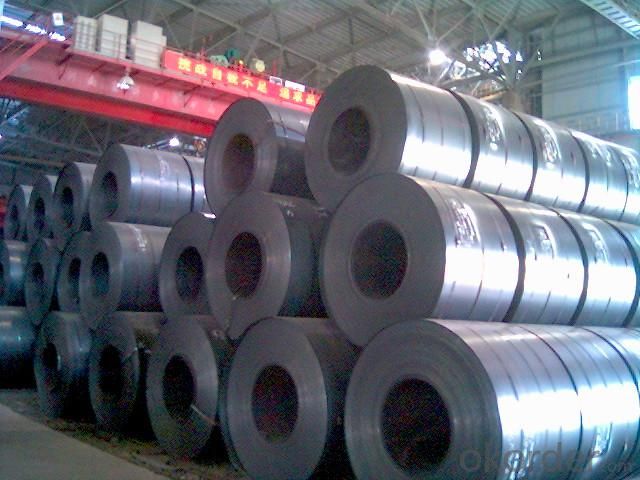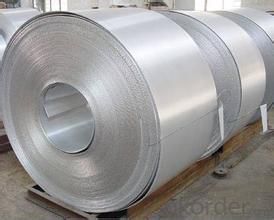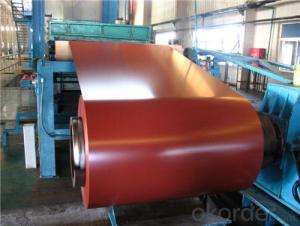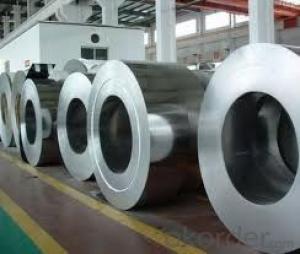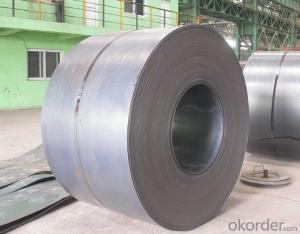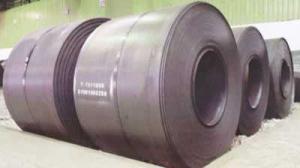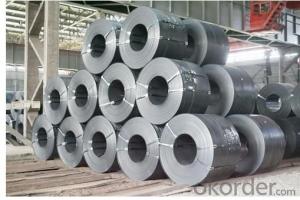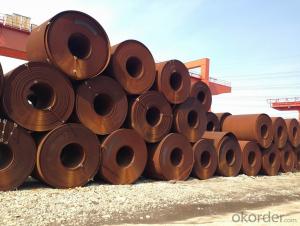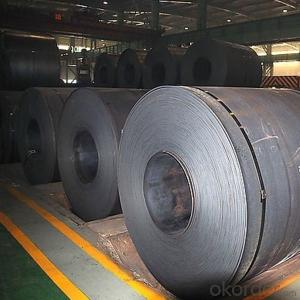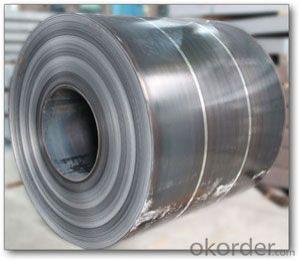Carbon Hot Rolled Steel Coil 2
- Loading Port:
- China Main Port
- Payment Terms:
- TT or LC
- Min Order Qty:
- -
- Supply Capability:
- -
OKorder Service Pledge
OKorder Financial Service
You Might Also Like
Quick Details
Standard: | ASTM,GB,JIS | Grade: | ASTM A36,Q235,SS400 | Thickness: | 3-15mm |
Place of Origin: | Shanxi/Hebei China (Mainland) | Model Number: | carbon steel coil | ||
Type: | Steel Coil | Technique: | Hot Rolled | Surface Treatment: | passivation,oiled, |
Application: | normally | Special Use: | High-strength Steel Plate | Width: | 1250-2000mm |
Length: | as required |
Packaging & Delivery
Packaging Detail: | Standard waterproof packing |
Delivery Detail: | Within 15-30 days after receiving your L/C |
Specifications
1.Standard:GB,ASTM,JIS
2.Grade:ASTM A36,Q235,SS400
3.Thickness:3-15mm
4.Width:1250-2000mm
5.Packaging: Standard waterpoof packing or as required.
6.Payment Terms: L/C or T/T
7.Delivery: by shipment
FAQ of Steel Coil:
①How is the quality of your products?
Our products are manufactured strictly according to national and internaional standard, and we take a test on every coil before delivered out.
②How about price?
Yes, we are factory and be able to give you lowest price below market one, and we have a policy that “ for saving time and absolutely honest business attitude, we quote as lowest as possible for any customer, and discount can be given according to quantity.
③Why should you chose us?
Our service formula: good quality+good price+good service=customer’s trust
SGS test is available, customer inspection before shipping is welcome, third party inspection is no problem.
Steel Coil Images:
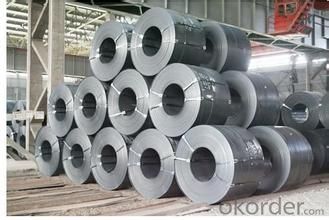
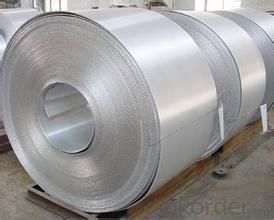
- Q: How is the critical temperature of structural steel affected by fireproofing? What temperatures can fireproofed structural steel withstand?
- This would depend upon the method of fireproofing. Steel used to be insulated with an asbestos coating. Of course the steel under the insulation had the same critical temperature as the uncoated steel but was protected from external heat by the insulation. More commonly it would be an alloy and there are so many that one could not guess except to say it should be higher than the original.
- Q: How do steel coils withstand extreme temperatures?
- Steel coils are able to withstand extreme temperatures due to the unique properties of steel. Firstly, steel has a high melting point, allowing it to maintain its structural integrity even at extremely high temperatures. Additionally, steel has excellent thermal conductivity, which enables it to evenly distribute and dissipate heat. Furthermore, steel undergoes various heat treatment processes during manufacturing, such as quenching and tempering, which enhance its strength and resistance to temperature fluctuations. Overall, these factors make steel coils highly capable of withstanding extreme temperatures.
- Q: full discription about hydrolics used in steel melting shop with hyd valve is use in thair circit too ?
- The correct spelling is hydraulics. I haven't heard the term steel melting shop you probably means a foundry or a steel mill The most obvious example i can think of is hydraulic-operated fork lifts. Hydraulic cylinders are used to lift the forks and to tilt them upwards or downwards. The valves are coneccted to levers next to the steering wheel. Hydraulic pressure is supplied by a hydraulic pump driven by a propane or diesel engine. In some forklift designs the wheels are also not connected directly to the engine, but driven by hydraulic motors. There are also a large variety of machines used in steel mills and metalworking companies to cut and shape metal parts. for example, press brakes, plate cutting shears, stamping presses, hole punch machines, drawing presses, etc. These types all operate in much the same basic way. They use a very large cylinder or group of cylinders to apply many tons of force to different kinds of metal working tools.
- Q: How are steel coils used in the production of metal cladding?
- Steel coils serve as the primary raw material for metal cladding production. Metal cladding involves covering a building's exterior with a layer of steel to enhance its durability, aesthetics, and insulation. To begin the manufacturing process, galvanized steel coils are used. These coils are made by coating steel with zinc to prevent corrosion. They are then unrolled and fed into a roll-forming machine, which shapes them into the desired profile for the cladding panels. Once the coils are formed, they undergo various processes to improve their properties. These processes include cutting, perforating, and embossing to create patterns, textures, or openings in the panels. Additional protective layers, such as paint or powder coating, can also be applied to enhance corrosion resistance and appearance. The shaped and processed coils are assembled into metal cladding panels. These panels interlock seamlessly to create an appealing exterior for buildings. They can be attached to the building's structure using screws, clips, or adhesives. Using steel coils in metal cladding production offers several advantages. Steel is a strong and durable material, making it suitable for exterior applications that require resistance to weathering, impact, and other environmental factors. It also allows for a wide range of design options and customization. In summary, steel coils are essential in the production of metal cladding. They serve as the raw material, which is shaped, processed, and assembled into panels that enhance buildings' protection, aesthetics, and insulation properties.
- Q: We bought a new fridge and the magnets don't stick to the front where the stainless steel is.
- The stainless steel which dont exhibit magnetic properties are austenitic grades of steel.
- Q: I have a 03 jeep wrangler and looking to upgrade to black wheels. I was wondering if the difference between steel and alloy wheels is worth paying double.
- steel is steel is steel- they will always be heavy you would have to weigh them to find out--NOW if you are going to alloy wheels they are typically aluminum and yes they are lighter -this is good because it lightens your un-sprung weight and is less harmful to your suspension-good for your auto
- Q: How are steel coils used in the production of metal ductwork?
- Steel coils are an essential component in the production of metal ductwork. These coils, typically made from high-quality steel, serve as the primary raw material for manufacturing ductwork. The process begins with the unwinding of the steel coil, which is then cut into specific lengths according to the required dimensions of the ductwork. These lengths are then shaped into the desired form using specialized machinery, such as roll formers or bending machines. The steel coils provide the necessary strength and durability to the ductwork, ensuring that it can withstand the pressure and environmental conditions it may encounter in its operational life. The coil's composition also allows for easy fabrication and customization, enabling manufacturers to create ductwork of various shapes and sizes to meet specific project requirements. Furthermore, the inherent properties of steel, such as its resistance to corrosion and fire, make it an ideal material for ductwork. Steel coils can be coated with protective layers, such as galvanized or stainless steel finishes, to enhance their longevity and performance. This added protection ensures that the ductwork remains intact and functional even in harsh environments or in the presence of corrosive substances. In summary, steel coils play a crucial role in the production of metal ductwork by providing the necessary raw material for fabrication. Their strength, durability, and customization capabilities make steel coils an indispensable component in the manufacturing process, resulting in reliable and long-lasting ductwork systems.
- Q: How are steel coils used in the production of storage systems?
- Steel coils are used in the production of storage systems by being formed into sheets or strips, which are then shaped and welded to create the framework and shelves of the storage units. The high strength and durability of steel make it an ideal material for supporting heavy loads and ensuring the longevity of storage systems.
- Q: I just got a set of all-clad Stainless steel frying pans, they are very nice yet they didn't come w/ instructions to care for them. I have never cooked w/ stainless steel cookware so I really don't know much about them. I was told they should have a lifetime warranty on them, but I don't want to reck them. I would appreciate any information I can get on stainless steel cookware. Thanks.
- Here's what All Clad has to say: Cleaning Cleaning the Stainless Steel Interior: Immerse in warm water. Use a fine powder cleanser with water to form a paste. Apply paste using a soft cloth. Rub in a circular motion from the center outward. Wash in hot, soapy water, dry immediately. DO NOT USE oven cleaners or cleansers with chlorine bleach. DO NOT USE steel wool. Cleaning the Steel Stainless Exterior: The polished stainless steel exterior of All-Clad Stainless requires very little care. It may be polished with one of the available commercial stainless steel cleaners, rubbing in a circular motion. Rinse in lukewarm water. We do not recommend using steel wool, steel scouring pads or harsh detergents. Nylon scrubbing pads are safe to use. You may wash Stainless in the dishwasher. The cleaners that they're talking about here are: Soft Scrub Bon Ami Barkeeper's Friend Those are the LEAST abrasive and won't harm your pans.....look for them in the cleaning aisle of your supermarket......How do you like your All Clad, BTW?? Just wondering......Enjoy!! Christopher
- Q: How are steel coils tested for strength?
- Steel coils are typically tested for strength through a variety of methods, including tension, compression, and bending tests. These tests involve subjecting the coils to various levels of force to determine their resistance and ability to withstand pressure without deformation or failure. Additionally, non-destructive techniques such as ultrasonic or magnetic particle testing may be employed to detect any imperfections or weaknesses within the coils.
Send your message to us
Carbon Hot Rolled Steel Coil 2
- Loading Port:
- China Main Port
- Payment Terms:
- TT or LC
- Min Order Qty:
- -
- Supply Capability:
- -
OKorder Service Pledge
OKorder Financial Service
Similar products
Hot products
Hot Searches
Related keywords
